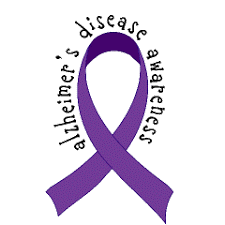Dementia affects millions of individuals and their families, often bringing emotional, physical, and logistical challenges. Whether your loved one has just been diagnosed or their condition is progressing, understanding dementia—and knowing where to turn for help—is key to providing the best possible care. Understanding dementia and how home care can help can make a significant difference in managing the condition. Supporting dementia at home can also contribute greatly to the overall well-being of your loved one.
One of the most effective forms of support is in-home care, which offers personalized assistance, routine, and comfort right where your loved one feels safest—home.
What Is Dementia?
Dementia is not a specific disease but a general term used to describe a decline in memory, thinking, behavior, and the ability to perform everyday activities. Alzheimer’s disease is the most common type, but there are several other forms, including Lewy body dementia and vascular dementia. Understanding these forms is essential in supporting dementia at home.
Common symptoms include:
Memory loss and confusion
Difficulty with communication or language
Disorientation in time and place
Personality and behavior changes
Difficulty with complex tasks or problem-solving
Tips for Families Dealing with Dementia
Caring for someone with dementia can be overwhelming, but these tips can make a meaningful difference:
1. Establish a Consistent Routine
Routines provide a sense of stability and reduce anxiety. Try to keep mealtimes, bedtime, and daily activities on a predictable schedule. Supporting dementia at home often starts with a simple and consistent routine.
2. Keep Communication Simple and Supportive
Use short, clear sentences and maintain a calm, reassuring tone. Avoid correcting or arguing, and instead focus on comfort and connection. This is crucial in the context of supporting dementia at home.
3. Create a Safe Environment
Minimize tripping hazards, install grab bars, and ensure that medication, sharp objects, and hazardous materials are stored securely. Creating a safe environment is a key part of supporting dementia at home.
4. Engage in Meaningful Activities
Listening to music, going for a walk, looking at family photos, or doing simple crafts can provide joy and mental stimulation. These activities are important for supporting dementia at home.
5. Take Care of Yourself
Family caregivers need rest too. It’s okay to ask for help—respite care and in-home support can ease the load and prevent burnout. Remember, supporting dementia at home includes taking care of yourself as well.
How In-Home Care Supports Individuals with Dementia
Professional caregivers are trained to work with individuals experiencing cognitive decline. They provide compassionate, consistent care that promotes dignity and comfort, while also offering relief to family members. Supporting dementia at home through professional caregivers can enhance the quality of care.
Services May Include:
Memory care and redirection techniques
Personal care assistance (bathing, dressing, toileting)
Companionship and engagement in daily activities
Fall prevention and mobility assistance
24/7 monitoring or hourly care, depending on needs
By receiving support at home, individuals with dementia benefit from familiar surroundings, fewer disruptions, and more personalized attention. Supporting dementia at home in familiar surroundings can be incredibly beneficial.
A Homemade Plan: Compassionate Dementia Care at Home
At A Homemade Plan, we understand how dementia affects both individuals and their families. Our experienced caregivers offer patient, compassionate, and consistent care tailored to each person’s unique needs and stage of cognitive decline. Supporting dementia at home is our primary goal.
We’re here to support your family with the care, resources, and peace of mind you deserve.
If your loved one is living with dementia, you don’t have to navigate this journey alone.
Contact A Homemade Plan today to learn more about our in-home dementia care services.





